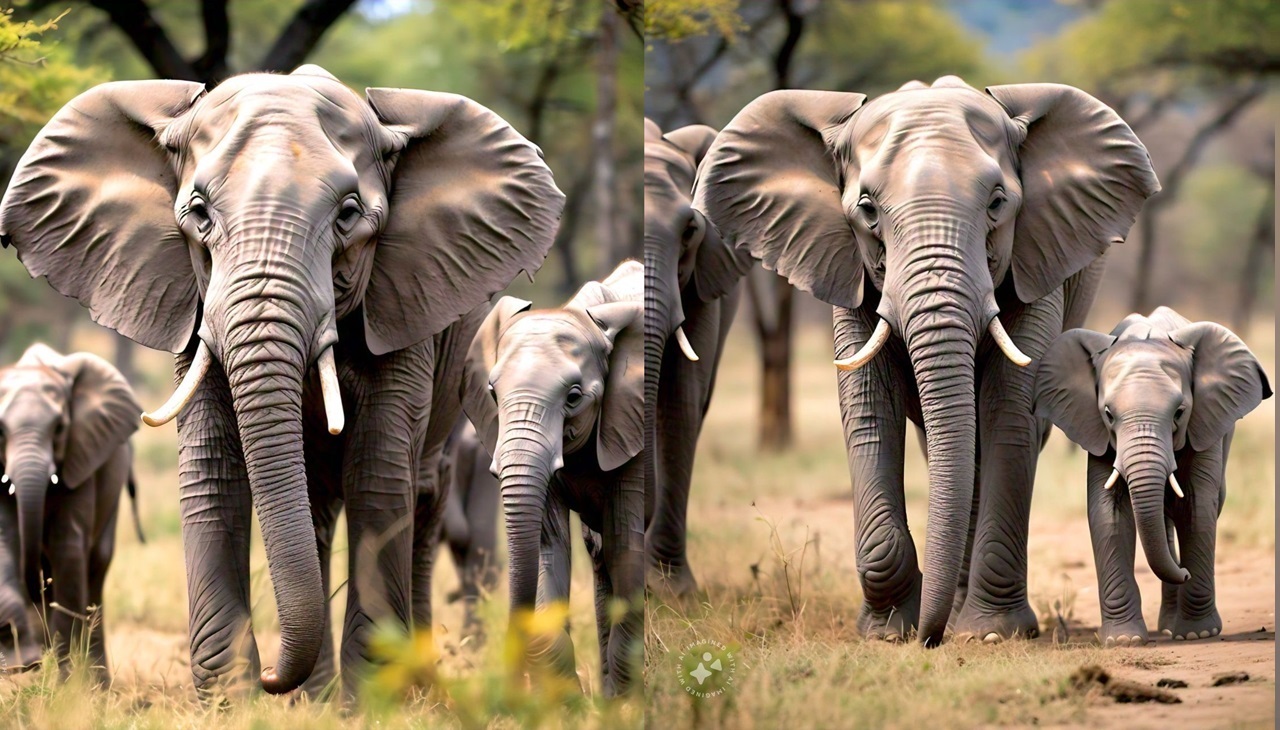
Climate crisis: in Zimbabwe, 200 elephants authorized to be slaughtered to feed drought-stricken population
The African country's government is trying to deal with the effects of an El Niño that destroyed crops across the country.
The government of Zimbabwe has just adopted a measure that is generating a lot of controversy and that shows that 2024 represents a turning point in terms of climate. In order to feed populations affected by drought, the authorities of the African country gave the go-ahead for the slaughter of 200 elephants that will be used to feed those people who are suffering from drought, especially at the end of the year.
Since the beginning of 2024, experts have been warning about the impact of the El Niño phenomenon in the country. The effects were felt aggressively on crops and for that reason a disaster situation was declared in April this year.
According to ReliefWeb, the humanitarian information project of the United Nations Office for the Coordination of Humanitarian Affairs, “Following the severe impacts of the El Nino induced drought which affected more than 80% of the country resulting in significantly below-normal harvest, the country declared the 2023-2024 agriculture season a state of national disaster at the beginning of April 2024. The government appealed to humanitarian partners for resource mobilization to alleviate the possible impacts of the drought.”.
RELATED CONTENT
In Zimbabwe, there are more than 6 million people suffering from food insecurity due to the Climate Phenomenon. The desperate decision of the authorities shows how far the event has gone and how it has not been possible to alleviate the situation of Zimbabweans According to CNN, the Minister of Environment, Sithembiso Nyoni, explained to the Congress of the Republic that "We are discussing with Zim Parks (Zimbabwe Parks and Wildlife Authority) and some communities to do like what Namibia has done so that we can count the elephants, mobilize the women to maybe dry the meat and package it to ensure that it gets to some communities that need the protein."
The Guardian reported that Zimbabwe's elephant population is the second highest in the world at more than 100,000. Criticism has obviously not been long in coming. Farai Maguwu, director of the Center for Natural Resource Governance, a non-profit organization, told the British newspaper that "Government must have more sustainable eco-friendly methods to dealing with drought without affecting tourism."
This is not the first time such a decision has been taken. According to AP, in August the Namibian government authorized the slaughter of 723 animals, including 83 elephants, 30 hippos, 60 buffaloes, 50 impalas, 300 zebras and 100 elands, among others.











LEAVE A COMMENT: